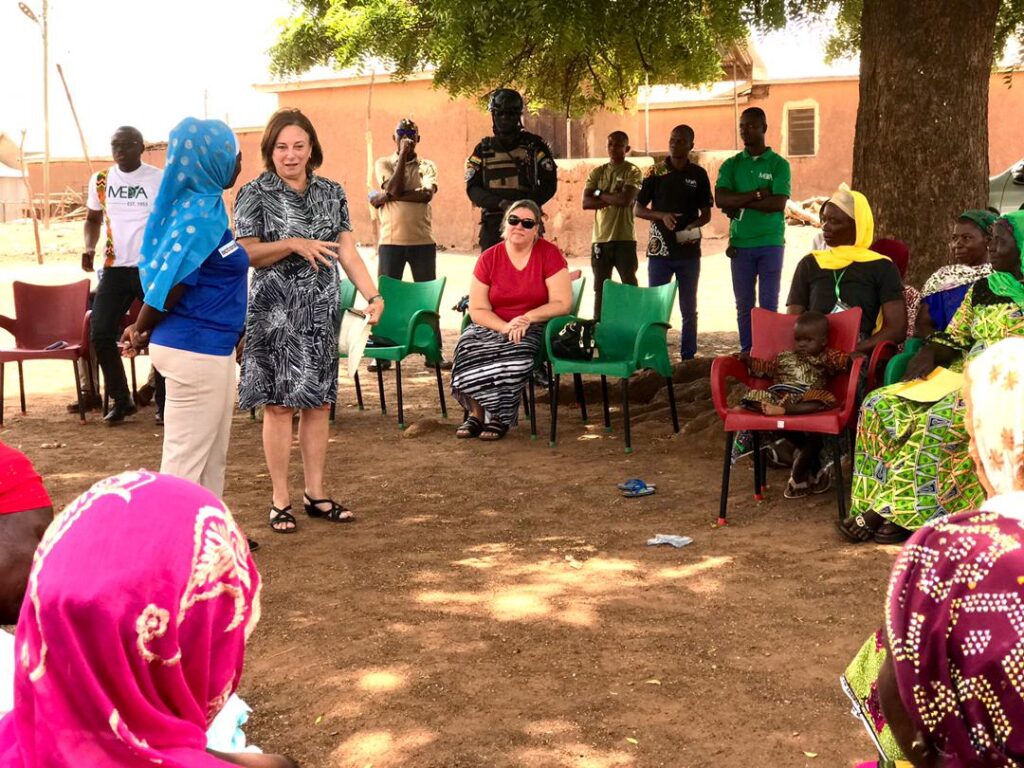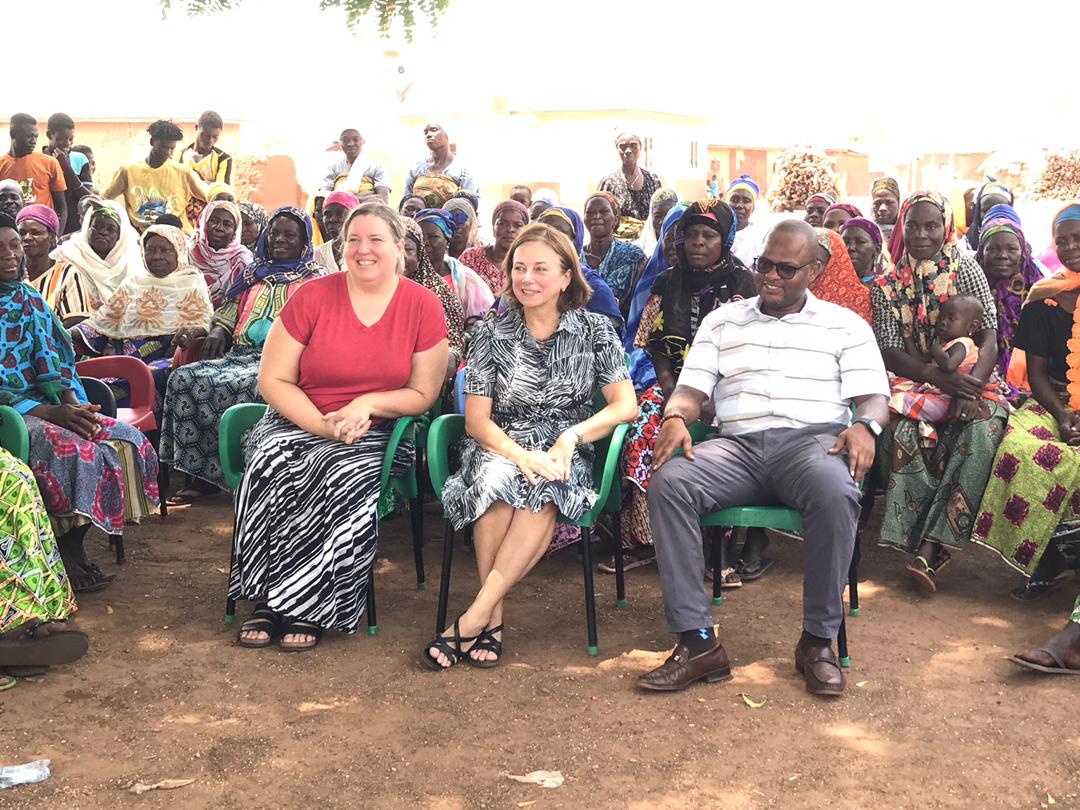Zoggu is one of the 28 communities under the Nanton district where the GROW2 project is executed within the Northern region by URBANET Ghana. It has been identified as one of the communities with much potential considering its vibrant women smallholder farmers and aggregators and their zeal to embrace change. Through the project, many initiatives under the market systems component and gender transformative approaches have been implemented in the community, which have seen great progress.
Through the continuous support from URBANET Ghana and the GROW2 project, the community is slowly becoming a hub for serious agribusinesses owned by women, gender rights advocacy, and several other transformational development initiatives.
As the sponsor of the GROW2 project, Global Affairs Canada (GAC) has shown immense interest in the project and its progress. Through the major implementor, MEDA Ghana, it pays working visits to its Key Facilitating Partners (KFPs) to measure the impact of the project on clients (beneficiaries).
URBANET Ghana hosted the Canadian High Commissioner to Ghana, Martine Moreau, the Senior Development Officer at GAC, Mr. Majeed Mohammed, and a team from MEDA Ghana in the Zoggu community. The visit was meant to interact with the women under the project, especially those who could acquire the various technologies under the project’s Price Discount Scheme (PDS) and members of the Gender Module Family (GMF) activity. Most of them shared their experience, the benefits they have derived from the project, and how it has transformed their households and businesses.

The High Commissioner, through the GESI officer of URBANET, interacted with some women who own tricycles and groundnut shellers acquired through the project. She found interest in how they were able to acquire such pieces of machinery and how well it is helping them. She expressed her satisfaction at how far the women have come and are working hard to transform themselves and their children.
Through the project’s market system and gender transformative approaches, many of them have improved their relationships with spouses and children, and have attained alternative income sources in addition to what they did previously, which has improved their financial status. The project intends to reduce poverty, if not end it, amongst women through business and market approaches. It seeks to create as many women in the agribusiness sector as possible, and URBANET, through its project officers across its Zones of Influence, is ensuring that it is achieved.

